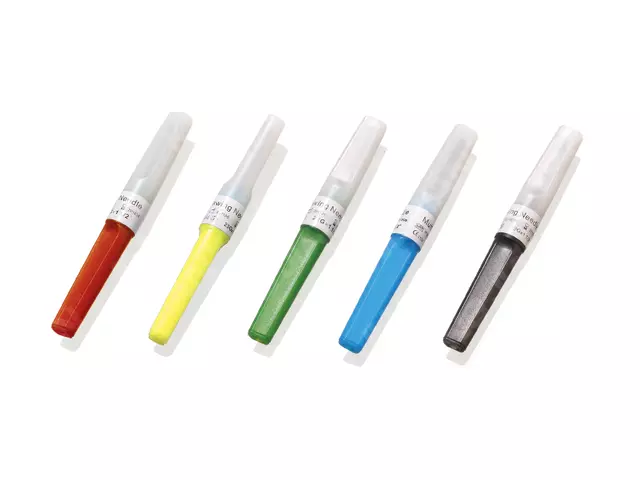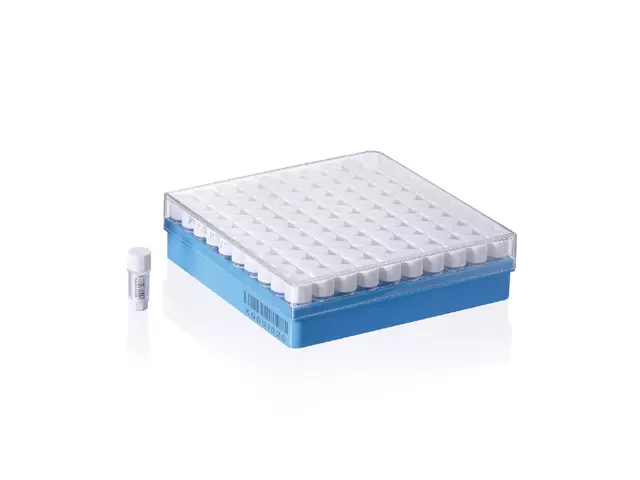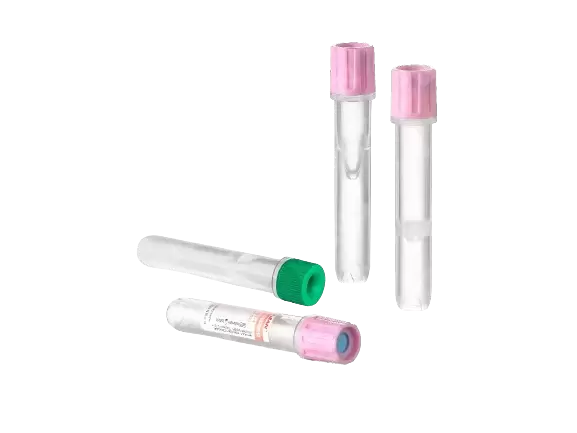The Ultimate Guide to Plastic Cell Scrapers: Essential Tools for Precision and Cleanliness
In industries ranging from manufacturing and food processing to laboratories and agriculture, the importance of precision cleaning cannot be overstated. A plastic cell scraper is one of those essential tools that ensures cleanliness and precision, making it a vital part of many industrial and laboratory environments. This guide Kangjian explores the features and applications of a plastic cell scraper, highlighting its importance in maintaining high standards of hygiene and efficiency in a variety of settings.
What Is a Plastic Cell Scraper?

A plastic cell scraper is a specialized tool used for the removal of cells, debris, or other residues from surfaces in laboratory or industrial environments. Made from durable, non-reactive plastic materials, these scrapers are designed to ensure cleanliness without damaging the surfaces they are used on, making them perfect for delicate tasks.
Plastic cell scrapers are commonly used to collect and transfer cultured cells in laboratory settings, particularly in cell culture processes. The plastic material is non-abrasive and chemically inert, which ensures it does not interfere with the integrity of the samples. The scraper's flat, flexible design allows it to fit into tight spaces, making it ideal for scraping and transferring materials from surfaces like petri dishes, culture flasks, or even equipment in a cleanroom setting.
Key Features of Plastic Cell Scrapers
A plastic cell scraper offers a range of functional advantages that make it a preferred tool in laboratories, manufacturing environments, and hygiene-critical industries. Compared with metal or glass alternatives, plastic scrapers provide a balanced combination of surface safety, chemical tolerance, and operational precision. Understanding these features in detail helps users select the right tool for sensitive and accuracy-driven tasks.
1. Non-Abrasive Material for Surface Protection
One of the most important advantages of a plastic cell scraper lies in its non-abrasive construction. Typically manufactured from high-quality polymers such as polypropylene (PP) or polystyrene (PS), the scraper is specifically designed to protect delicate surfaces during contact. This is particularly critical when working with cultured cells, coated laboratory vessels, or polished equipment surfaces.
Unlike metal scrapers, which can easily scratch or deform surfaces, a plastic cell scraper features a smooth, slightly flexible edge that conforms to the working surface. This design allows effective removal of cells, residues, or films without compromising the integrity of culture dishes, flasks, or workbenches. As a result, laboratories can maintain consistent experimental conditions while minimizing the risk of surface damage or sample loss.
2. Excellent Chemical Resistance in Harsh Environments
Another defining feature of the plastic cell scraper is its strong resistance to a wide range of commonly used chemicals. The plastics used in these scrapers are engineered to withstand exposure to acids, mild solvents, alcohols, and cleaning agents without cracking, swelling, or degrading.
This chemical resistance makes the plastic cell scraper especially suitable for laboratory and industrial environments where frequent cleaning, sterilization, or chemical handling is required. Even after repeated exposure to disinfectants or reagents, the scraper maintains its structural integrity and scraping performance. This durability not only enhances safety but also reduces the need for frequent replacement, contributing to long-term operational efficiency.
3. Precision and Control for Delicate Operations
Precision is essential in many applications, and the plastic cell scraper is designed to deliver controlled and accurate performance. Its flat profile and carefully engineered flexibility allow users to apply consistent pressure during scraping, reducing the risk of uneven force or accidental damage.
In cell culture workflows, a plastic cell scraper enables uniform detachment of adherent cells from culture surfaces, supporting reliable downstream analysis or transfer. The ergonomic handle design further enhances user control, allowing steady manipulation even during extended procedures. This level of precision makes the plastic cell scraper a dependable tool in scientific research, medical laboratories, and high-accuracy production settings.
4. Durability and Long Service Life
Despite its lightweight appearance, a plastic cell scraper is built for durability. High-grade plastic materials provide sufficient strength to withstand repeated use, bending, and cleaning cycles without structural failure. This robustness makes the scraper suitable for both single-use and reusable applications, depending on operational requirements.
In laboratories and industrial facilities where tools are used frequently, durability translates directly into cost savings. A well-manufactured plastic cell scraper maintains its shape and scraping edge over time, ensuring consistent performance throughout its service life. With proper handling and storage, these scrapers can remain reliable for extended periods.
5. Ease of Use and Simple Maintenance
Ease of operation is another reason the plastic cell scraper is widely adopted across industries. Its lightweight construction minimizes hand fatigue, making it comfortable to use during repetitive or prolonged tasks. The intuitive design allows both experienced professionals and new users to operate the tool effectively without specialized training.
Maintenance is equally straightforward. Most plastic cell scrapers can be easily cleaned using mild detergent and water, and many designs are compatible with standard sterilization or dishwasher cleaning processes. This simplicity supports hygienic practices and ensures that the scraper remains ready for repeated use in controlled environments.
Applications of Plastic Cell Scrapers
Thanks to their gentle contact surface and high functional reliability, plastic cell scrapers are used in a broad range of industries where precision cleaning and material handling are required.
1. Laboratory and Research Applications
In biological and biomedical research laboratories, the plastic cell scraper is a standard tool for harvesting adherent cells from culture dishes, flasks, and plates. During cell detachment procedures, the scraper provides controlled mechanical action that preserves cell viability and morphology, which is essential for accurate experimental outcomes.
Beyond cell culture, plastic cell scrapers are also used to remove residues, protein films, or contaminants from laboratory surfaces while maintaining sterile conditions. Their non-abrasive nature ensures compatibility with sensitive labware, clean benches, and incubator components, supporting consistent laboratory hygiene.
2. Food Processing and Hygiene-Sensitive Environments
In the food processing industry, maintaining clean and undamaged equipment surfaces is critical for safety and compliance. A plastic cell scraper is commonly used to remove food residues, fats, or processing by-products from machinery and work surfaces without scratching stainless steel or coated components.
Because plastic cell scrapers do not shed metal particles and are resistant to cleaning chemicals, they help prevent cross-contamination and extend the service life of food processing equipment. This makes them suitable for use on conveyor belts, cutting surfaces, packaging stations, and other hygiene-critical areas.
3. Agricultural and Veterinary Applications
Plastic cell scrapers also play a role in agricultural research and veterinary practice. In plant biotechnology and tissue culture studies, these tools are used to collect plant cells or remove samples from growth media with minimal disturbance. The gentle scraping action supports clean sample collection while reducing contamination risks.
In veterinary clinics and animal research facilities, a plastic cell scraper can assist in handling biological samples or cleaning surfaces where non-abrasive tools are required. Their ease of sterilization further enhances their suitability in controlled biological environments.
4. Electronics and Precision Manufacturing
In electronics manufacturing and precision assembly, surface protection is a top priority. A plastic cell scraper is frequently used to clean circuit boards, optical components, screens, and delicate mechanical parts. Its ability to remove residues without scratching sensitive materials helps maintain product quality and reduces defect rates.
By using plastic cell scrapers instead of harder tools, manufacturers can safely perform maintenance and cleaning tasks while preserving the integrity of high-value components. This makes the scraper an essential accessory in cleanrooms, electronics workshops, and advanced manufacturing facilities.
Conclusion
The plastic cell scraper is an essential tool in various industries, providing a reliable, efficient, and safe way to handle cleaning, harvesting, and maintenance tasks. Whether you are working in a laboratory, food processing facility, or manufacturing plant, this simple yet effective tool offers precision, durability, and ease of use. By choosing the right scraper and following best practices for use and maintenance, you can ensure that your tasks are completed efficiently and with minimal risk of contamination or damage.
With its versatility, durability, and practicality, the plastic cell scraper is a must-have tool for anyone working in environments where cleanliness, precision, and safety are paramount.




